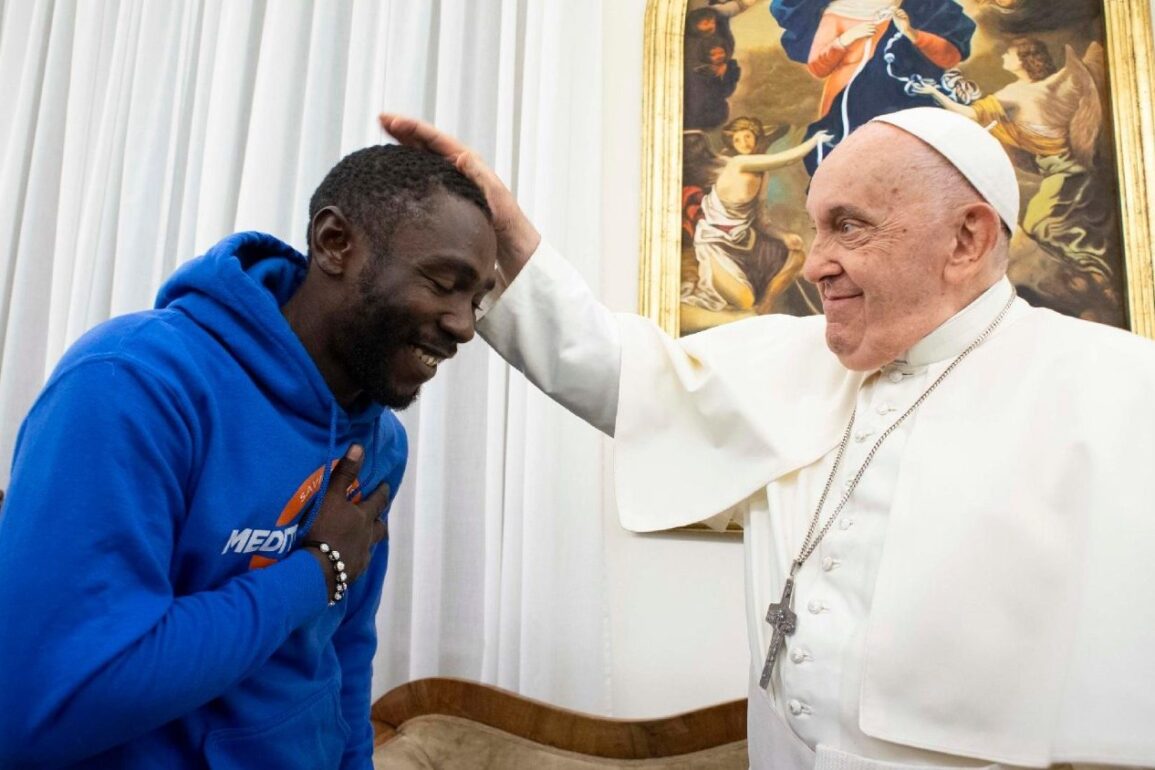The Holy See Press Office has informed journalists that late this Friday afternoon, 17 November, at Casa Santa Marta, Pope Francis met with Mbengue Nyimbilo Crepin, known as Pato, from Cameroon, accompanied by Don Mattia Ferrari, who as chaplain has participated in numerous rescue missions of Mediterranea Saving Humans. Present with them were some immigrants and collaborators from associations and organisations involved in the reception and integration of refugees, who in various ways have contributed to facilitating Pato’s arrival in Italy, and Cardinal Michael Czerny, Prefect of the Dicastery for the Service of Integral Human Development.
The communication also recalls that “Pato lost his wife and six-year-old daughter in July this year after the Tunisian authorities arrested him and took him back to the desert between Libya and Tunisia”.
Painful stories of thousands of migrants
The statement further noted that “in an atmosphere of emotion for his story, Pope Francis listened to the words of thanks for the encounter and the painful stories of the thousands of people who suffer as they try to reach Europe”.
David, from South Sudan, who works alongside prisoners in North African detention camps, thanked the Pope for his encouragement and interventions on behalf of migrants: “They don’t just give us a dream, they welcome us.”
The Pope: “I have prayed a lot for them”
Greeting them, after listening to their words, Pope Francis addressed Pato, with a thought for his wife and daughter: “I have prayed a lot for them”, he thanked those present for their commitment and recalled the privilege of being born in places where one can study, work: “The privilege is a debt”, he affirmed, “what they do is not an addition, it is a duty”.
Finally, before taking his leave, Pope Francis prayed for those present, asking the Lord to watch over those who “work for others”, for people who have not been able to come, for those in detention camps, and “for many, many who suffer”.










